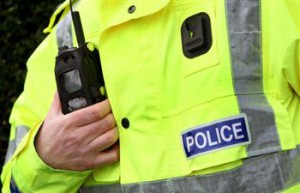
CASH strapped Scottish police forces have splashed out more than £2million on translators in three years.
The country’s eight forces spent a total of £2,144,263 on interpreter and translator fees between 2008 and last year.
The bill is for face-to-face interpreters, telephone interpreting and translation of documents when dealing with suspects, accused, witnesses – or anyone contacting the police who can’t speak English.
Matthew Elliot, chief executive of the TaxPayers Alliance said: “A lot of the money spent on translation isn’t helping cut crime or keep the public safe and it’s unfair that some people who live in Britain but can’t be bothered to learn the language are asking all taxpayers to shoulder the costs of interpreters.”
According to official figures last year’s expenditure, which amounted to £753,684, was up significantly from the £650,642 spent in the 2008/09 financial year.
The highest figure for the three years was recorded by Strathclyde, which has splashed out £675, 284 since 2008.
Lowest was Dumfries and Galloway which spent just £49,118.
The majority of forces saw an increase in spending on translator services over the three years.
Strathclyde saw the biggest rise. Last year the force’s bill was £40,876 more than 2008/09.
Only two forces managed to cut their costs on interpreting.
Tayside saw the best saving, with £4801 less spent last year than three years ago.
Some police authorities, including Fife, Lothian and Borders and Strathclyde said they were unable to break down the costs, so their figures also include signing interpreters for the deaf.
The list of the most popular languages translated includes Polish, Arabic, Mandarin, Romanian, Lithuanian and urdu.
Some of the rarer languages include Tagalog (Austronesia), Pasto (Columbia) and Amharic (Ethiopia).
Most forces said they contracted interpreting services out to agencies.
Depute chief constable Steve Allen, the Association of Chief Police Officers Scotland’s Diversity Lead said: “The Scottish Police service uses translation services to ensure victims and witnesses are able to report matters in the language they find easiest to use.
“They are also used to allow officers to interview suspects and ensure the welfare and medical needs of those held in custody are adhered to.
“We are aware of the cost of using these services.
“In circumstances where a foreign national is not being formally interviewed, forces have a list of officers who can communicate in different languages and will check to see if these officers are available.”
Amount spent by forces in interpreting in the last three years:
Strathclyde £675,284
Lothian and Borders £519,694
Grampian £306,989
Tayside £202,447
Fife £171,160
Central Scotland £146,329
Northern £73,242
Dumfries and Galloway £49,118
Total £2,144,263
